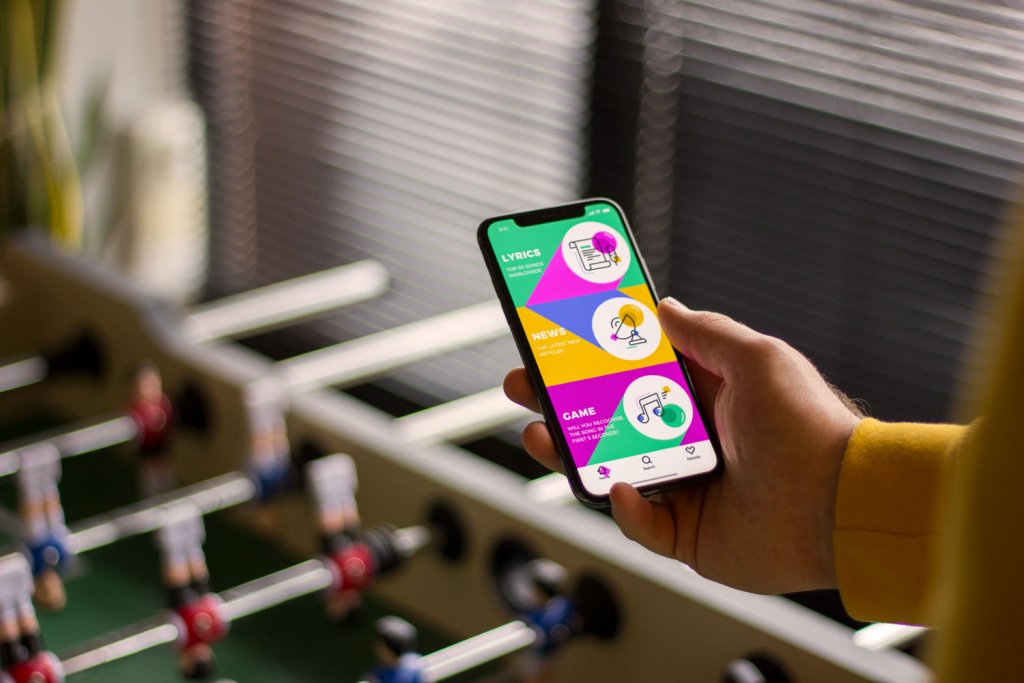Well, let’s be honest guys: nobody starts as a smart and excellent professional ready to solve and fix at a blink. There’s always a starting point. At this very point, somebody is hesitating about the workplace, someone is not sure about the salary, and there is always the one who is pondering hardly about the job itself. We know what we’re talking about: each of us has been there. That’s why we got together some thoughts in order to share with those who are starting right now.
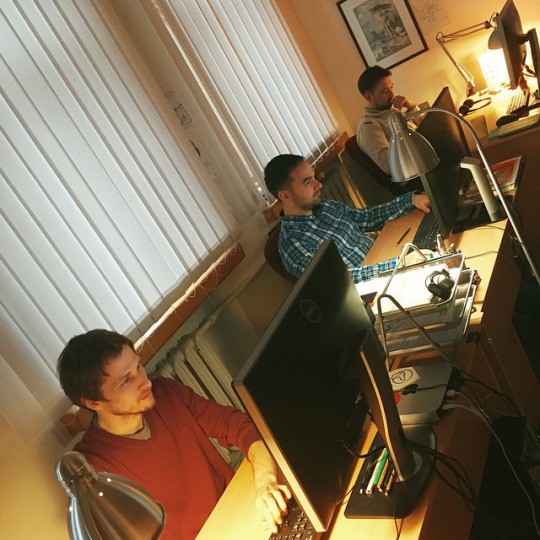
Designers for Tubik Studio at work
Tip 1. Strong determination and clear ambitions
The first and really crucial thing may sound rather primitive: you should make sure that you really want to make it your job. There are lots of people who, being great artists, deeply creative and inspired, get broken by the necessity to work systematically with strict deadlines and loads of requirements and wishes (sometimes illogical or not-too-professional) from the customers. Clear up the nature of your job: the designer is not a pure artist free of obligations and fully devoted to creativity. Nope. In different stages of your project, you’re also going to be a researcher, an analyst, a time-manager and so on and so forth. Bear in mind all those things from the very start of the way.

CEO of Tubik Studio Sergey Valiukh, whose working day is always full of everything
Tip 2. Get experience from the best artisans
That is a sort of eternal advice working in the sphere of web design as great as in any other field of creativity. First, you study from the best stars in your trade and, if you are industrious and hard-working enough, one day you will be able to create something purely original, something of your very own. However, this day comes when you ARE ready and well-armed. So, don’t forget to study from the best. Look through the shots by the most popular teams and designers on Dribbble, Behance and any other resources for designers.
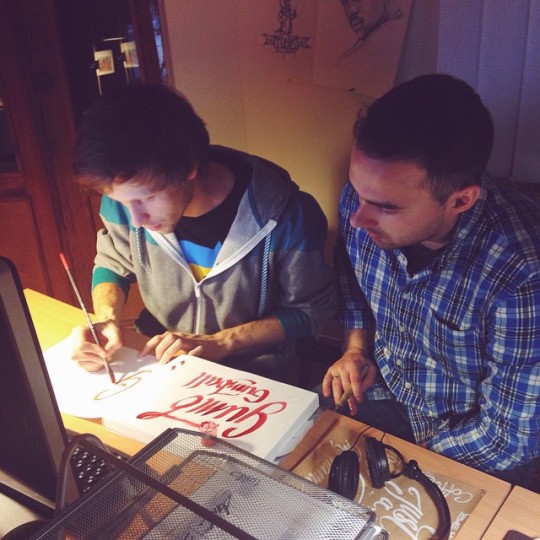
The short lettering training session at Tubik Studio
One more way to absorb their experience and get some great advice from specialists is to take any chance of a live meeting. All the platforms aimed to present portfolios by designers and supply different aids and useful stuff, regularly hold meetings with speakers well-known in the world of modern design, so in any country, you are able to listen to experienced professionals, ask them questions, sometimes present your works and get them evaluated. Therefore, make visiting various meetups and workshops more or less frequent part of your routine and, be sure, it will pay back very soon.

Sergey Valiukh as a speaker
You may like recognized designers more or less but remember: they ARE already well-known and successful. That means there always exists something you can learn from them. Analyze, get inspired, try to copy the best features so that you could get the technique. It was effective hundred years ago in traditional art schools and it still works now. Believe us, we’ve checked.
Tip 3. Share, share, share
There are a lot of designers who don’t hurry to share their works. Some of them are not confident enough and think they have to be much more experienced and skilled to present their creation anywhere to other designers or potential customers. The others are afraid that their ideas are going to be stolen by other designers as soon as they turn up in the Net. Actually, those thoughts and fears may be rather fair and grounded, BUT … You should realize that they are really high-quality brakes for the process of making your name in the sphere of web and app design. While you are boiling in your hesitations, other people are moving on sharing their works and getting feedback from designers and users and thus improving their creations and practicing their skills. If you want to move on in this sphere, it is essential to share. That is why Dribbble, Behance or any other way of presenting your work on the Web will make you somehow stronger and more competent in your job. Moreover, it would be fair to not only analyze and study someone’s efforts but also make it possible for others to do it with your work.
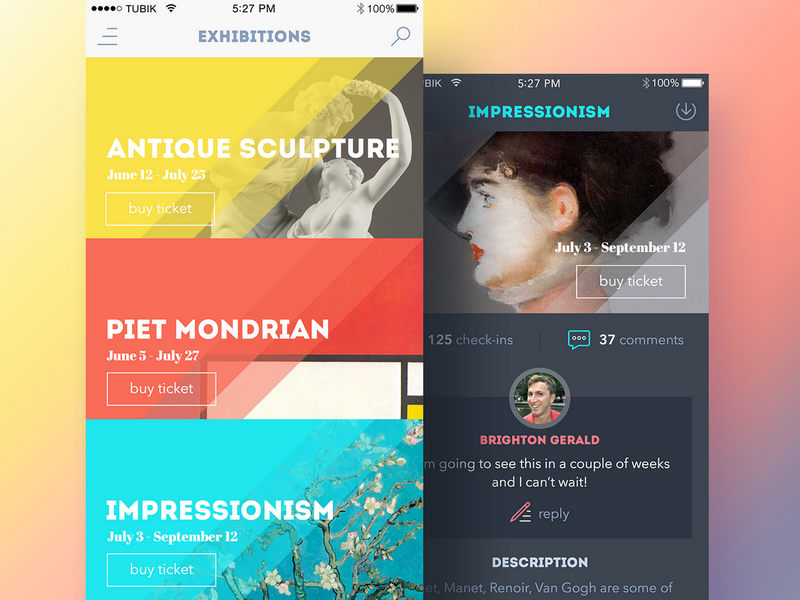
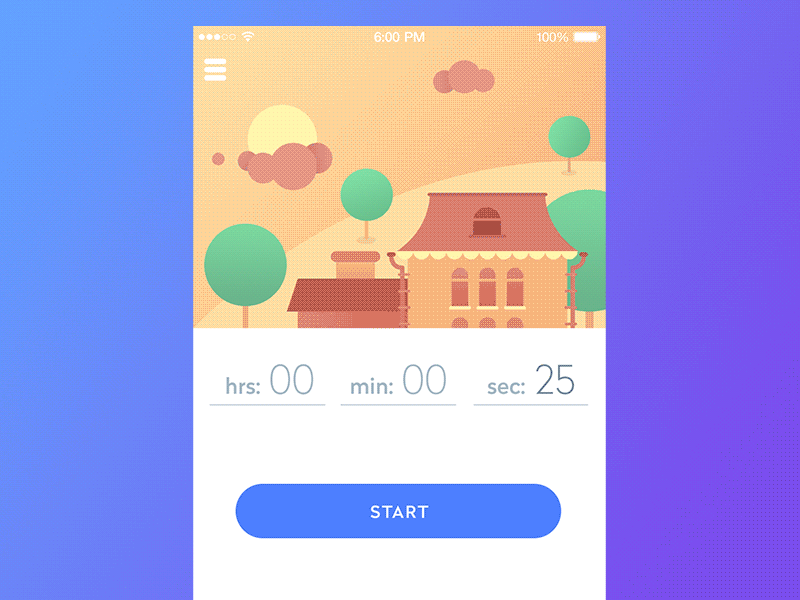

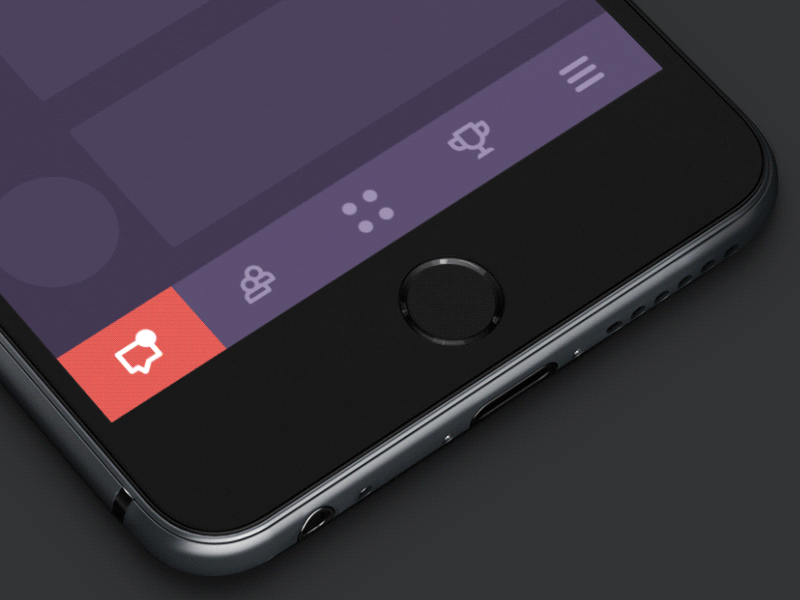
The set of shots by Tubik Studio
Tip 4. Keep theory and practice in the same basket
Well, we all know the saying that it’s not a good idea to keep all the eggs in the same basket. However, design has nothing in common with eggs. Here you really need to keep all the things together and theory should be always strengthened with practice. Don’t just analyze someone’s works — try to figure out the main practical features, test using different tools yourself. Then you not only get valuable knowledge of software and sites helpful for your work but also study how to plan your time using those tools and have an opportunity to choose those resources and software, which are the most convenient and efficient for you personally.

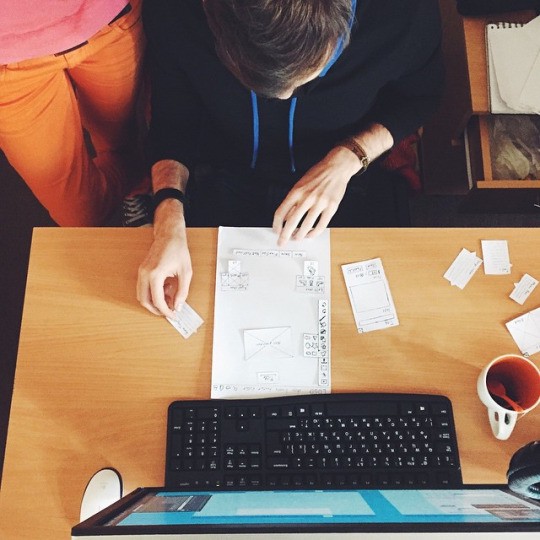
Test, use, keep positive!
Tip 5. Good old self-education
Ezequiel Bruni, a web/UX designer and blogger living in Mexico in his article The ultimate guide to getting started in web design says “The moment designers stop learning new things about web design is the moment they cease to be relevant. The Internet is all about relevance. Seriously, if your website looks too dated, chances are that many visitors won’t stick around to see what you have to say. Perception is everything”.
Well, it’s vital to say he is absolutely right. You have no choice: in the sphere as changeable and dynamic as app and web design you MUST study all the time. The good thing is that studying this craft now is much easier as tons of books, manuals and guides have already been brought out and this process never stops. There are also loads of webinars, workshops, and e-books allowing you to get more aware of major issues in the field you have chosen for your career.

Studying never stops at Tubik Studio
Tip 6. Keep your head above the design ocean
If you want to create something that is going to be both useful and popular, you should always keep yourself alert. It’s really important to feel the ray of the day, to be aware of the most important and required features and demands to stay trendy and relevant. Again, looking through blogs and sites devoted to design is helpful to keep you up-to-date. Again all kinds of meetups, seminars and workshops should be mentioned, as they give you the chance both study but and — that is sometimes even more important — make new friends, get acquainted with colleagues from other cities and countries, communicate with other designers in both formal and informal atmosphere. That is always a really positive, inspiring and useful experience.

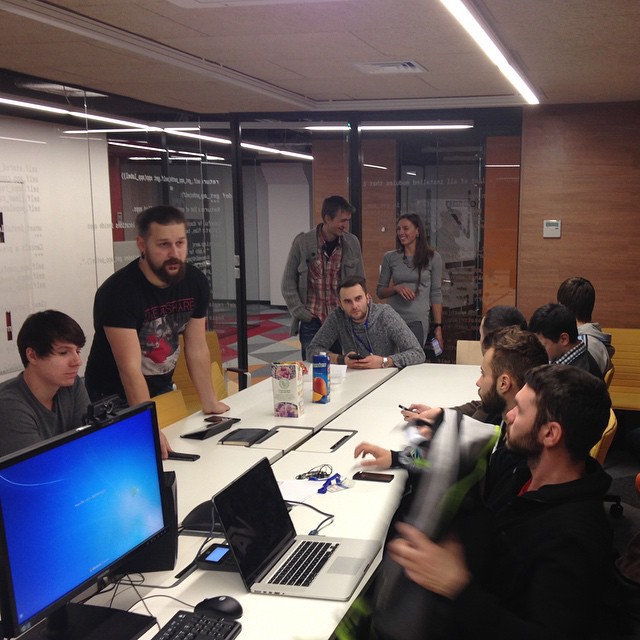
Communication is a part of the job: Tubik Studio meeting with colleagues at different events
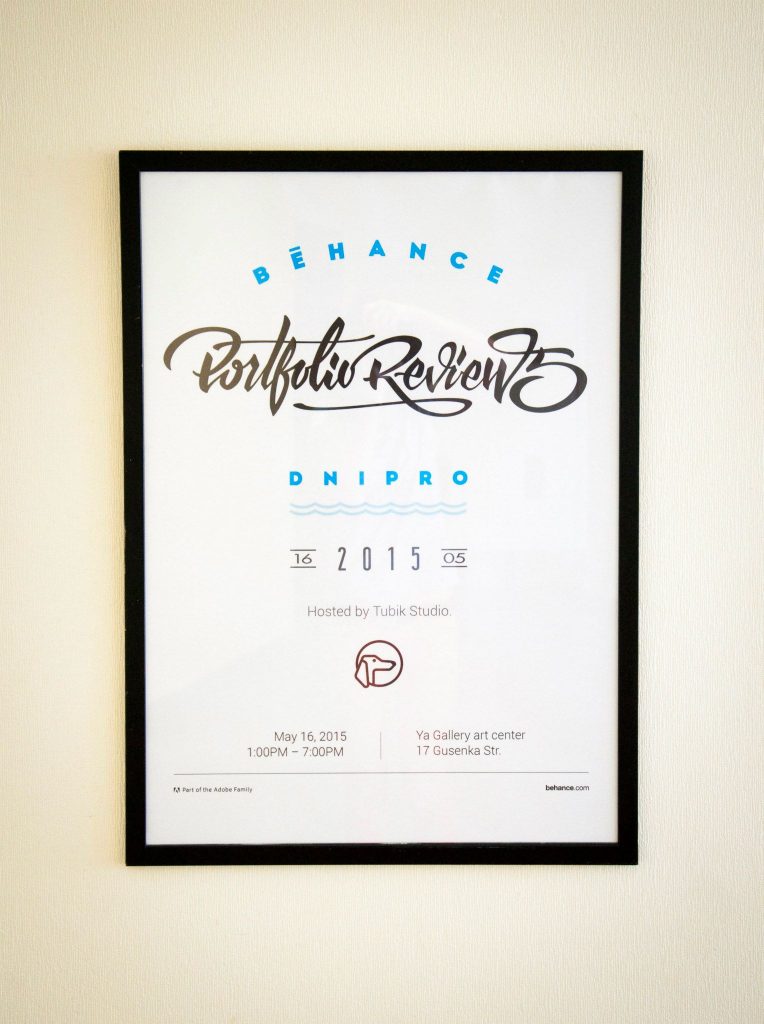
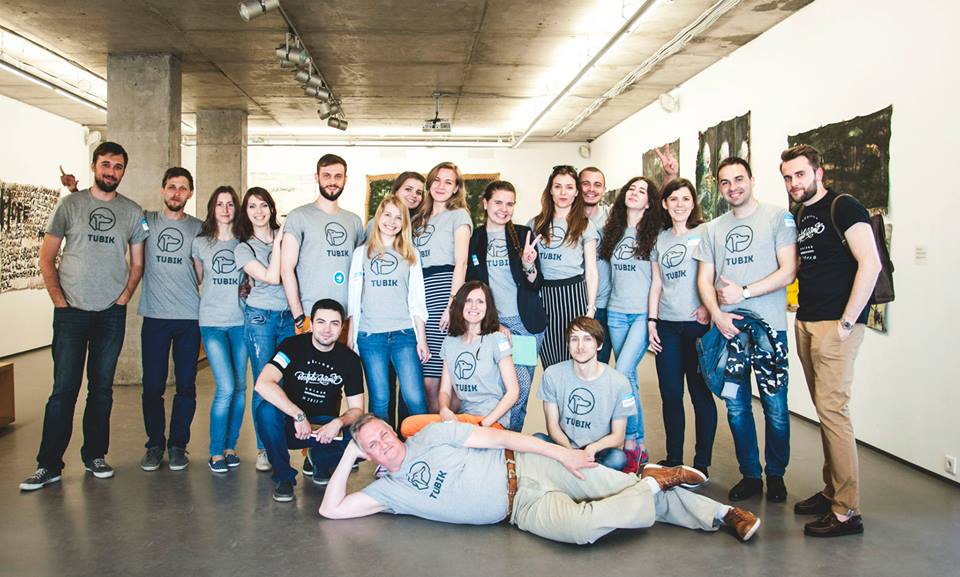
Behance Portfolio Review in Dnipro, Ukraine hosted by Tubik Studio
Tip 7. Live the job, don’t just do it
As has been already mentioned above, one of the fundamentals of creating efficient products is keeping theory and practice together. However, don’t think that it’s only about YOUR particular product. It is also about the products by others. You should live your job all the time, you should practically know and use the most trendy stuff of your trade, otherwise, you risk to lose the feeling of reality and link to your user. To understand your user, you should BE a user. Actively use social networks and applications, don’t forget to update your soft, try the newest features of mailing, instagram your life and work. Feel every step of using various products so that your own success and failures could tell you how to avoid bugs and drawbacks in your designs.
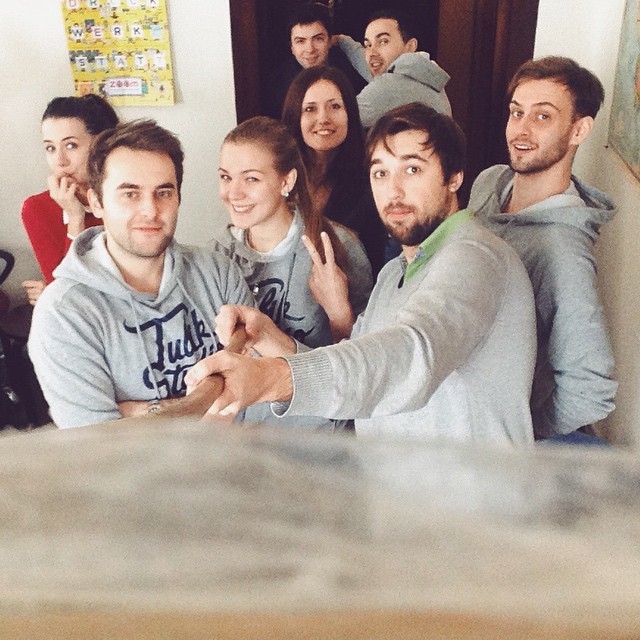

Always keen to use, have fun, and share
Hopefully, these tips will help you somehow, and we sincerely wish you good luck in every step you’re going to make on your design path.
Researched and collected by Marina Yalanska, content writer for Tubik Studio
Useful Articles
Many Faces of Graphic Design: What Do Graphic Designers Do?
Design Workstyle: Freelance vs Teamwork
Design Career: How to Get a Dream Design Job
Time Management for Creative People
10 Ways How User Experience Designers Bring Value to the World



